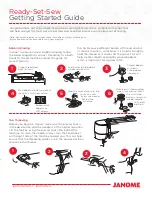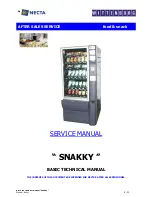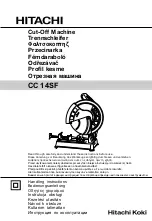
23
-
with call type recognition (fax or telephone)
With the "FAX/PHONE" switch enabled (in countries where this function is permitted), the
facsimile machine recognizes whether the call is an ordinary telephone call or the caller wants
to send a fax
4
The procedures, page 85.
-
in confidential mode
When confidential documents are to be received, you can have them stored in a special
memory location called a "confidential mailbox" instead of having them printed immediately.
In this way, the password (to be agreed upon with the sender) will have to be entered before
they can be printed.
The type of reception adopted by the machine depends on the setting of the set-up parameter
"RECEPTION MODE". In addition, by enabling the set-up parameter "SUBSTITUTE RECEP-
TION", the facsimile machine can store the documents received when the printer is occupied by
other functions or out of operation due to the paper or ink running out or a paper jam in the paper
feed mechanism. The facsimile machine's memory contains about 70 pages.
POLLING
1
Polling could be defined as a "self-service data communications" method. It enables you to connect
to a remote facsimile machine and request it to send a document automatically. This means that
the owner of the remote machine does not have to be present. This method of distributing
documents can be limited to a group of correspondents (for example, for sending confidential
documents) or entirely free to anyone who requests it (for example, for distributing price lists).
There are two main features of communication by polling:
-
the receiver activates transmission of the document
i.e. you can connect to a remote facsimile machine and get it to automatically send an
appropriately prepared document even if the remote user is not present
-
the receiver is charged for the call
i.e. the
receiver is charged for the call instead of the sender.
The facsimile machine that sends the document and the one that requests transmission have
several different methods of polling.
















































